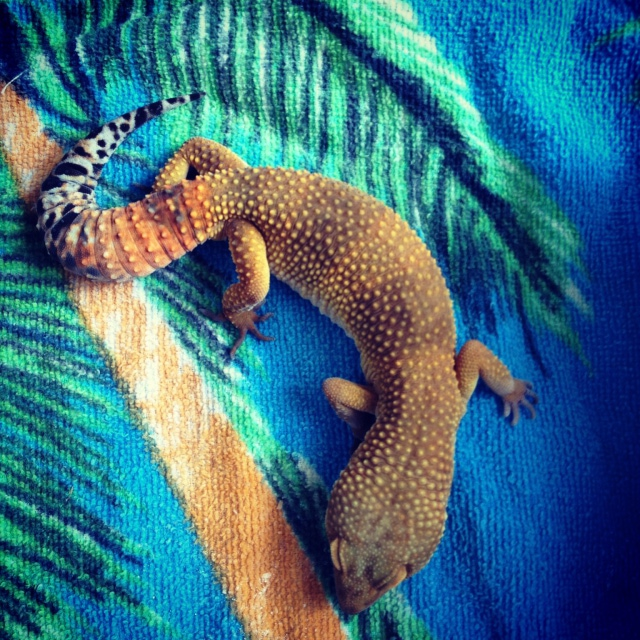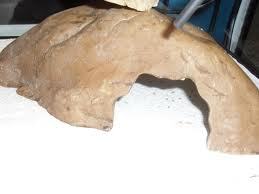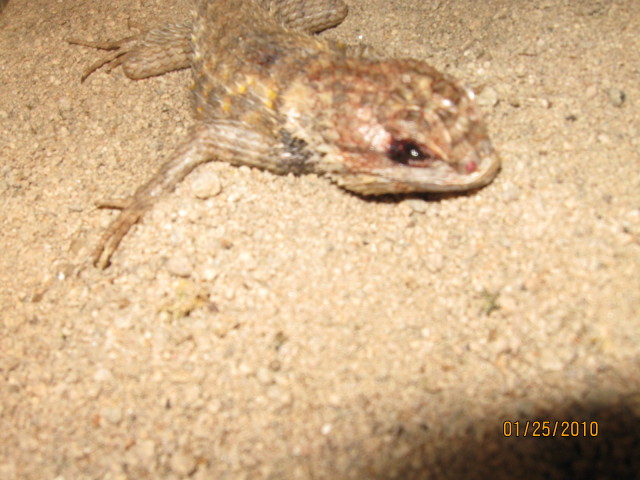QuestionCan you please tell me how is the best way to become a great herpetologists? I love all animals no matter how much of a nuisance they may become!My favorite animals of all are reptiles.Can't pick between the snakes or lizards.Oh yeah and how can you tell which ones is a female or a male,I also need a little help on finding out if some of them are venomous or harmless.Thanx and if you can try to answer my question to the best of your ability!{BE BLESSED!!!}*SMILES*
AnswerHi Quentin,
I don't know how old you are or how far along in school but you already have what it takes. Now the best thing to do is to join a heretological Society in the area. Listen and participate as much as you can. Hang around with the ones with lots of experience and who will show you things. Of course take all the biology and zoology classes you can. You tell a male from female by probing. Ask to this and do it yourself with the guidence of a member. If there isn't a Society in the local area, Start one. Post a small ad in the paper. post a notice at pet shops and have poeple intersted contactyou. Hold a first meeting and you now have a society. Check with wildlife officers for pamplet showing the venomous snakes in your area. Read the following that I have included. Good Luck! Edmund Brown [reptileEd]
http://www.ReptileSpectacular.com
Herpetology Careers Frequently-Asked Questions
This page was initiated on 13 April 1998 in the hope that it will be a useful supplement to our Herpetology as a Career <career.html> brochure. Of course, we do not expect that it will answer all your questions, or that it will answer your questions completely. But it should provide many answers, and as always you are encouraged to contact us <mailto:gpisani@ku.edu> with additional questions.
Except for one very important item. Over the past 2-3 years, it seems to have become fashionable for teachers and guidance folks to assign students to "interview someone in a field that interests you and write a report on it; then hand in the report." This has resulted in a predictable flood of such requests every Spring! So, to save time (yours and ours), here is an Interview with a Herpetologist <interview.html> for you to print and hand in!
Where can I find schools that offer a degree that includes course work in herpetology?
There is a partial [and somewhat outdated] list at <http://www.anapsid.org/univ.html> that will get you started. But one of the best ways is to use a major search engine and plug in the words herpetology course. You can also add a state name, etc to refine your search. We are in the process of building a database, and will make it available when it gets to a useful size.
Where can I find out more about the biology job-areas mentioned in the second paragraph of the brochure?
The following general resources should be useful starting points for you.
college and university employment; biological research
University of Kansas Biological Sciences jobs <http://www.kuub.ku.edu/jobscareers/> page.
zoological park employment:
The American Zoo and Aquarium Association <http://aza.org/> maintains a Zoo & Aquarium Careers <http://aza.org/aza/career.htm> page. A monthly Postions <http://www.aza.org/aza/communique/positions.htm> page also is maintained by AZA.
museum employment:
Many requisites for museum employment overlap with those of colleges and universities. The Society for the Preservation of Natural History Collections <http://www.uni.edu/museum/spnhc/> is a professional group of museum collection managers. It is active internationally, and has links from its home page to related resources.
government employment:
Many, many online resources in this area exist. Employment opportunities include local, state, and federal levels, and several areas (e.g. , sea turtle conservation) may offer jobs with a specific herpetological orientation. Some good starting points are:
US Fish and Wildlife Service <http://www.fws.gov/>
US National Park Service <http://www.nps.gov/pub_aff/jobs.htm> Careers page.
National Wildlife Health Center <http://www.emtc.nbs.gov/nwhchome.html>
National Biological Information <http://www.nbs.gov/> service.
Federal Jobs Digest <http://www.jobsfed.com/>. A private source of Federal Job information.
A clickable map for locating state environmental conservation agencies. <http://www.ink.org/public/kdwp/Hotlist/HLStates.html> Or, if you are using a TEXT browser, check this list <http://nrcdec.nrc.state.ne.us/otherresources/nasca/state.html> from the National Association of State Conservation Agencies.
State and Local Government on the Net <http://www.piperinfo.com/state/states.html>
veterinary medicine:
An increasing number of veterinary medicine programs offer training in dealing with what are called "exotics." Reptiles and amphibians are included in this, and may be owned by zoos or hobbyists. The Association of Reptilian and Amphibian Veterinarians <http://www.moontower.com/ARAV/> is a non-profit international organization of veterinarians and herpetologists founded in 1991. Its goal is to improve reptilian and amphibian veterinary care and husbandry through education, exchange of ideas and research.
Do I absolutely need a graduate degree (Masters or PhD) to do research in herpetology?
To do herpetological research as a university faculty member or museum curator presently requires a PhD and usually a history of successful grant-writing. However, there are a fair number of persons doing high-quality, accepted research in herpetology who have no higher degree. They are scholars in every sense of the word who are self-taught, and who went out and collected animals, made careful observations, read a lot, and talked to others at professional meetings. One of the leading authorities on Mexican herpetology is a pharmaceuticals salesman in Louisiana. One of the leading authorities on Kansas (USA) herps, just now retired, never finished college. And, one of the world's authorities on the breeding biology of pythons is a young fellow in Oklahoma (USA) who has managed to make a fine living out of breeding them commercially. But note that the emphasis of this section is jobs in herpetology; doing good research does not guarantee a salary for it!
What kind of benefits does a herpetologist get? Do you get medical and dental benefits, and retirement?
These things depend upon your employer and are very variable.
What's the best way for a high school (or younger) student to begin to prepare to investigate herpetology as a career?
It is important to begin to cultivate contacts through joining any State herpetological society or similar groups. Many have Web sites. Membership typically is a broad cross-section of society -- persons with jobs in diverse fields, who share an interest in herpetology. Some members almost surely will be university faculty; others may work in State non-game wildlife programs; some will be students; others will be interested hobbyists with no job-link to herpetology at all.
Also, you should, in high school, take a well-rounded set of courses (emphasizing sciences) that will qualify you for admittance to a good, 4-year college, in which you should major in what generally is called "organismic biology" or some synonym for that which distinguishes it from "cell and molecular." Your GPA will be important; competition can be fierce! I know of no undergraduate program that offers herpetology as a sole concentration; it simply is too narrow a field, though at many schools a herpetology COURSE or two will be offered. A Bachelor's of Science degree would be appropriate.
How can a person, who because of young age or lack of formal schooling, learn about reptile and amphibian behavior other than by reading books?
Don't ignore reading as a source of knowledge! Books and scientific journals contain a wealth of information unavailable on the Web. Keeping herps as pets is an enjoyable way to observe habits and get to know species, but it has its own drawbacks in that care is constantly required, even when on vacation or off to college (some species live a LONG time!). It can be as useful (maybe more), if there is a nearby good-quality zoo, to volunteer some Summer time to help do cleaning or be a "gofer" in the reptile department. Do not expect to be allowed to work with live animals at once; zoo policy or insurance regulations may in fact prohibit non-employees from so doing. But, one can learn a great deal this way, as well as expand one's contacts. And, sometimes good-quality volunteer work can lead to a paying job. Volunteer work should be planned as a regular part of the week, so supervisors know they can depend upon a volunteer showing up, even if for a couple of hours MWF (or whatever all agree is useful). Volunteering to help a college faculty member with research interests can be a similarly good experience that allows a lot of learning as a benefit.

 Leopard Gecko abscess
QuestionLeo Scab
QUESTION: Hello :)
I have had m
Leopard Gecko abscess
QuestionLeo Scab
QUESTION: Hello :)
I have had m
 New gecko morph?
Question
Morph? Morph?
I picked up my thir
New gecko morph?
Question
Morph? Morph?
I picked up my thir
 baby leopard gecko morph
Question
Rocky
I just got a super cute baby geck
baby leopard gecko morph
Question
Rocky
I just got a super cute baby geck
 Leopard Gecko Lighting and Heating
QuestionQUESTION: Hi I just have a quick question. My a
Leopard Gecko Lighting and Heating
QuestionQUESTION: Hi I just have a quick question. My a
 desert spiny lizzard
QuestionEYE
QUESTION: back in June my sister fou
desert spiny lizzard
QuestionEYE
QUESTION: back in June my sister fou